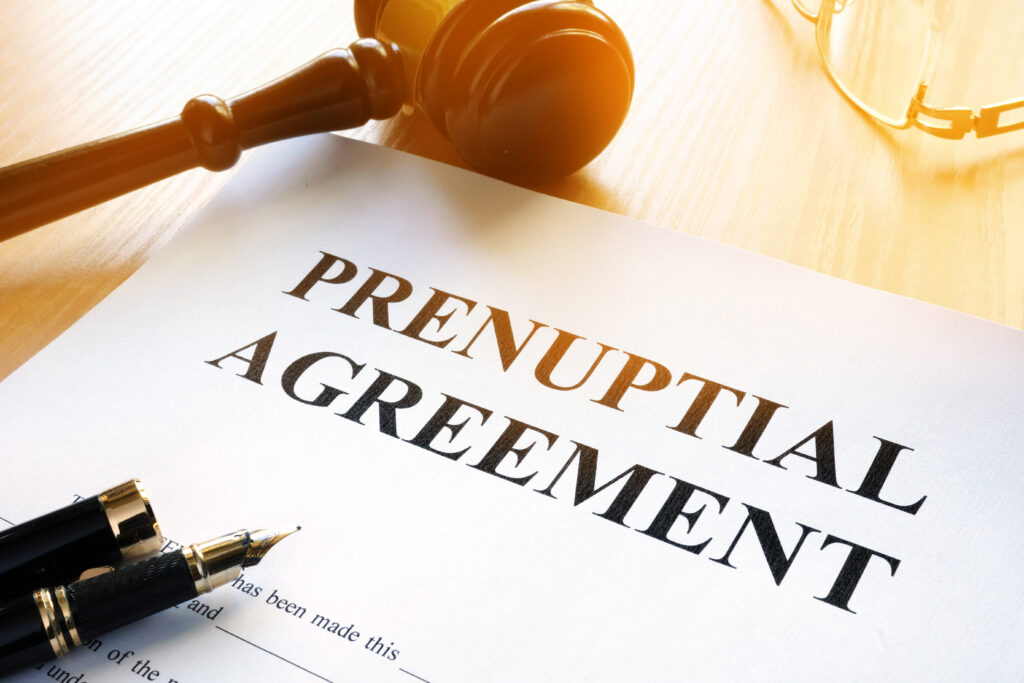Prenuptial agreements, often called ‘prenups,’ are legal contracts entered into before marriage, detailing the division of assets and financial responsibilities should the marriage end. While discussing prenups can be delicate, they can also provide a framework for open communication about finances and expectations.
This article discusses the importance of prenuptial agreements, who needs them, and how to draft a mutually beneficial contract for both parties. Continue reading to learn more and take this vital step towards protecting your interests before marriage.
Why are prenups important?
Prenuptial agreements serve as essential tools for financial planning and protection in marriage, allowing couples to clearly define the distribution of assets, debts, and responsibilities before entering wedlock. They ensure that personal assets and liabilities remain agreed upon, safeguarding individual interests and facilitating fairness. Moreover, prenups offer protection for children from previous relationships by securing their inheritance rights, demonstrating their role beyond mere asset protection.
Discussing and drafting a prenup encourages open communication about financial matters, fostering a stronger foundation for the relationship. By setting clear expectations and provisions for potential future scenarios, prenups reduce the likelihood of conflicts over finances, making them an essential aspect of marital planning. They empower couples to make decisions based on mutual agreements rather than leaving their fate to the state’s default laws in case of a divorce.
Aside from the above, couples also benefit from legal consultations from experts such as M & Co, which help them understand the risks and avoid complications in the future.
Who should get a prenup?
Contrary to popular notion, prenuptial agreements aren’t solely intended for the wealthy. They benefit anyone entering a marriage with assets, debts, or specific financial concerns. They’re particularly crucial for entrepreneurs and business owners to protect their enterprises, individuals with substantial premarital assets or debts, and those with children from previous relationships to secure their inheritance.
Furthermore, those expecting large inheritances or gifts or individuals with significant differences in wealth or earning potential should consider a prenup to clarify financial expectations and protections.
Couples seeking clarity on financial matters and those aiming to foster open discussions about finances can also benefit from prenuptial agreements. Establishing financial terms and responsibilities before marriage and prenups helps prevent future disputes and ensures that both partners’ economic interests are respected and protected.
Ultimately, anyone who desires an explicit, legally binding agreement regarding the division of assets and responsibilities in the event of divorce or death should consider getting a prenup.

Writing your prenup
Drafting a fair and effective agreement involves several crucial steps, as discussed below:
- Start the conversation early
The first step in the prenup process is initiating the conversation well before the wedding. This timing ensures that both parties can discuss their needs and concerns without the pressure of impending nuptials clouding their judgment. Early discussions foster transparency and allow ample time to understand and negotiate the terms fully.
- Identify your goals and concerns
Each partner should list their assets, liabilities, and any specific concerns or goals for the agreement. Typical objectives include protecting premarital assets, defining what will be considered marital property, and establishing guidelines for alimony. This step ensures the prenup addresses all relevant financial matters and personal priorities.
- Hire separate legal representation
For a fair and legally sound prenup, both parties should hire their own attorneys. Separate legal representation ensures that each person’s interests are adequately protected and that both understand the agreement’s implications. It also helps prevent undue influence or coercion issues, which can render a prenup invalid.
- Draft the agreement together
With the assistance of your attorneys, begin drafting the agreement. This collaborative process should include detailed discussions about handling potential future scenarios, such as inheritance, debts, and property division upon divorce or death. This step must be approached with openness and a willingness to negotiate to reach mutually beneficial terms.
- Full disclosure
For a prenup to be enforceable, both parties must fully disclose their financial situations. This includes all assets, liabilities, income, and expectations of gifts or inheritances. Withholding information can invalidate the agreement. This step reinforces the foundation of trust and ensures that decisions are made with a complete understanding of each other’s financial landscape.
- Review and revise
After drafting the agreement, both parties should review it thoroughly with their legal representatives. This review process may reveal areas that require clarification or adjustment. It’s not uncommon for several drafts to be created before finalizing the document. This iterative process is crucial for refining the agreement to ensure it’s fair, comprehensive, and reflective of both parties’ wishes.
- Finalize the agreement
Once both parties are satisfied with the draft, they can finalize the agreement. This typically involves signing the document in the presence of a notary. Some jurisdictions may have additional requirements, such as waiting periods or witness signatures, to ensure the agreement’s enforceability.
- Keep the document safe
After the prenup is signed, both parties should keep a copy safe. It’s also wise to review the agreement periodically, especially after significant life events or changes in financial circumstances, to determine if revisions are necessary.
Conclusion
Drafting a prenup can strengthen relationships by encouraging open and honest communication about financial matters and future expectations. By following these steps and approaching the process with care and consideration, couples can create a fair and practical agreement that protects both parties’ interests and provides peace of mind as they enter marriage.

